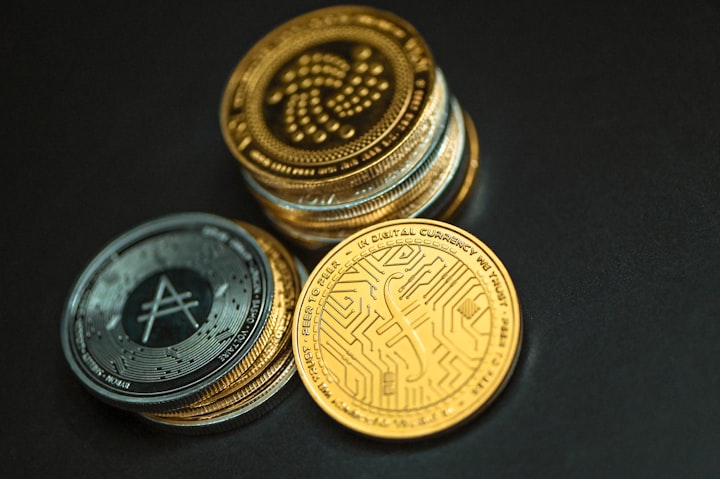The world of cryptocurrency has experienced unprecedented growth and innovation in recent years. As digital currencies continue to gain popularity and acceptance, a new disruptive force looms on the horizon: quantum computing. With its immense computational power and potential to revolutionize various industries, quantum computing poses both opportunities and challenges for the future of cryptocurrencies.
Introduction
To understand the implications of quantum computing on cryptocurrencies, it is crucial to first grasp the basic concepts of both fields. Cryptocurrency is a form of digital or virtual currency that relies on cryptography for secure transactions and control of additional currency units. On the other hand, quantum computing is a branch of computer science that utilizes quantum mechanics to perform computations exponentially faster than classical computers.
The Impact of Quantum Computing on Cryptocurrency
The rise of quantum computing raises concerns about the security of cryptographic algorithms that underpin cryptocurrencies. Unlike classical computers, which use binary digits (bits) for information processing, quantum computers leverage quantum bits (qubits) that can exist in multiple states simultaneously. This property enables quantum computers to solve complex mathematical problems with unparalleled speed, threatening the cryptographic foundations upon which cryptocurrencies rely.
In particular, quantum computers have the potential to break the widely-used public-key encryption algorithms, such as RSA and Elliptic Curve Cryptography (ECC). These algorithms form the basis for securing transactions, digital signatures, and private keys in cryptocurrencies. Once quantum computers reach a sufficient level of maturity, they could theoretically decrypt sensitive information and gain unauthorized access to cryptocurrency wallets, compromising their security.
Quantum-Resistant Cryptocurrencies
To address the imminent threat posed by quantum computing, researchers and developers are actively working on quantum-resistant cryptographic algorithms. These algorithms are designed to withstand attacks from both classical and quantum computers, ensuring the long-term security of cryptocurrencies. Examples of quantum-resistant cryptocurrencies include Quantum Resistant Ledger (QRL), IOTA, and the upcoming Quantum-Proof Ledger (QPL).
Adopting quantum-resistant cryptocurrencies provides several benefits, including robust security against quantum attacks, preserving the confidentiality of transactions, and maintaining trust in the digital currency ecosystem. However, transitioning to quantum-resistant algorithms presents challenges such as the need for widespread adoption, backward compatibility, and efficient implementation across existing cryptocurrency platforms.
Quantum Computing and Blockchain Technology
Beyond the realm of security, quantum computing holds the potential to enhance various aspects of blockchain technology. Quantum computing can improve consensus mechanisms, enable faster transaction processing, and enhance the scalability of blockchain networks. Furthermore, quantum-based random number generation can enhance the fairness and security of decentralized applications (DApps) and smart contracts.
However, integrating quantum computing and blockchain technology poses its own set of challenges. Quantum computers are highly sensitive to errors and decoherence, making the reliable execution of complex smart contracts and consensus protocols a formidable task. Additionally, the sheer processing power of quantum computers may pose a centralization risk if not properly addressed within the decentralized nature of blockchain systems.
The Future of Cryptocurrency in the Quantum Era
The emergence of quantum computing has sparked a race to develop quantum-resistant cryptocurrencies and cryptographic solutions. Collaboration between the quantum and cryptocurrency communities is essential to ensure the long-term viability of digital currencies in the face of quantum threats. Continuous adaptation, innovation, and research are imperative to stay ahead in this rapidly evolving landscape.
In conclusion, the advent of quantum computing presents both opportunities and challenges for the future of cryptocurrencies. While the security vulnerabilities posed by quantum computers are a cause for concern, the development of quantum-resistant cryptocurrencies and the integration of quantum computing and blockchain technology hold great promise. Embracing the quantum era requires proactive measures, collaboration, and a commitment to maintaining the security and integrity of digital currencies.
FAQ
What is quantum computing?
Quantum computing is a field of computer science that leverages the principles of quantum mechanics to perform computations much faster than classical computers. It utilizes quantum bits (qubits) that can exist in multiple states simultaneously, enabling the exploration of vast computational possibilities.
How does quantum computing affect cryptocurrencies?
Quantum computing poses a threat to the security of cryptocurrencies by potentially breaking the cryptographic algorithms that underpin them. The computational power of quantum computers could compromise the confidentiality of transactions, digital signatures, and private keys, making quantum-resistant solutions crucial for the future of cryptocurrencies.
What are quantum-resistant cryptocurrencies?
Quantum-resistant cryptocurrencies are digital currencies that utilize cryptographic algorithms specifically designed to withstand attacks from both classical and quantum computers. These cryptocurrencies aim to ensure the long-term security and integrity of transactions in the face of quantum threats.
Can quantum computing enhance blockchain technology?
Yes, quantum computing has the potential to enhance various aspects of blockchain technology. It can improve consensus mechanisms, transaction processing speed, scalability, and random number generation for decentralized applications and smart contracts. However, integrating quantum computing into blockchain systems presents technical challenges that need to be addressed.
What should individuals and businesses do to prepare for the quantum era?
Individuals and businesses should stay informed about the developments in quantum computing and quantum-resistant cryptography. It is essential to adopt quantum-resistant cryptocurrencies, implement robust security measures, and collaborate with experts in the field to ensure the long-term security of digital assets and transactions.






Comments
There are no comments for this story
Be the first to respond and start the conversation.